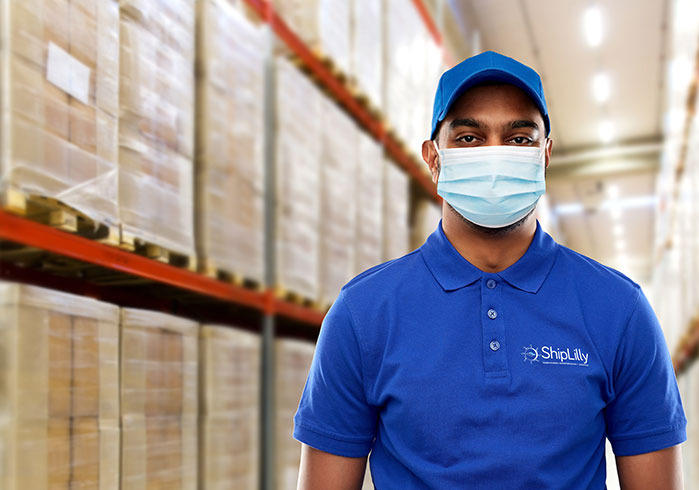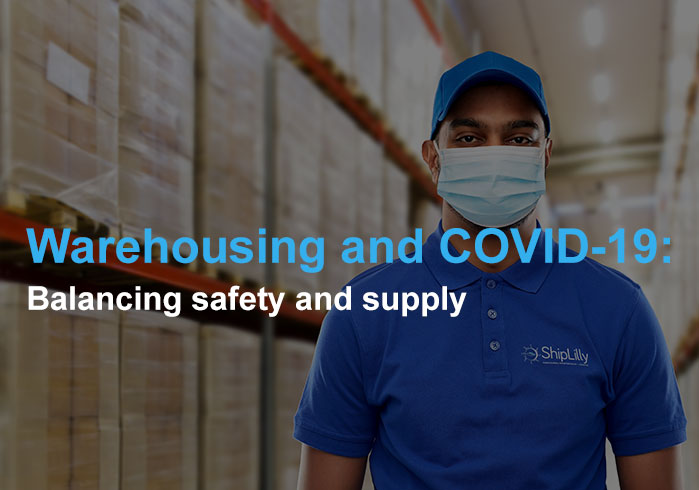
With so many health risks facing companies, those who are deemed non-essential have closed down or limited their operations. The problem manifests when essential companies like those supplying essential resources and services are also experiencing a drop in the availability of safety supplies, and yet are trying to avoid putting their personnel in harm’s way. There seems to be a very difficult line between having sympathy for employees and their families and making sure that essential items are still provided so that everyone can stay afloat. Companies are implementing measures very quickly with limited knowledge and learning on the fly. Some are doing better than others.
Warehouse safety during COVID-19
Businesses are changing their operations with very little warning to make sure that their warehouses can keep up with the demand for essential products as well as groceries without sacrificing the health and safety of employees. While other businesses have kept their workers in home offices, other companies (who provide jobs that can’t be performed from home) are pushing their employees to the limit behind the scenes to keep up with the even higher demand for things like cleaning supplies and food. As more people abide by the stay-at-home orders, rather than heading to the store when in need, the internet has become a safe haven for buying essential items.
Company spotlight
Not all companies are succeeding in the same degree. Some are enjoying more success when it comes to warehouse safety than others. The most successful of companies are those that have implemented measures to increase safety quickly and effectively to include things such as staggered breaks and lunches so that individuals are not gathered in a crowded break room at the same time as well as initiating sanitizing protocols for people at various locations and intervals such as going to and from work, holding meetings outdoors where there are better airflow and space, as well as requiring social distancing inside the warehouse when possible.
Amazon’s effort to keep up the pace
Unfortunately, these safety measures are not being enacted by every large business behind the scenes. Amazon is one business that has been heavily scrutinized for failing to implement the same level of safety standards to ensure the health and safety of its warehouse workers. Amazon has seen a tremendous increase in demand and the company’s first response was to suspend shipments of non-essential items to its warehouses. This suspension was meant to address shortages resulting from the pandemic.
They have learned from their mistakes and the company has increased the intensity of cleanings for all warehouse sites as well as the frequency of cleanings. They have also implemented a process for deep cleaning their facilities if employees end up testing positive. Certain changes to fulfillment centers now allow workers to maintain a safe distance, or so Amazon claims.
A different picture is painted by Amazon personnel, especially from news stories over the last few weeks by warehouse employees who, when sharing information about the lack of social distancing allowed in the warehouses or the lack of available safety equipment, were quickly fired. This theme has been voiced in multiple states by multiple workers who stipulate that Amazon fulfillment centers are not doing enough to protect their employees because of higher productivity quotas, they don’t have adequate cleaning supplies on hand, and they are forced to work closely together. Many reports state that employees are terrified of working because of this pandemic and as of late, 11 Amazon warehouse workers have already tested positive for Coronavirus. The facilities where workers have time to get tested and end up testing positive have been temporarily closed but it hasn’t resulted in mass closures and instead forces the facilities which remain open to pick up the slack of those that are currently closed.
Sysco’s clever response
Sysco, a foodservice distribution company, has expanded its focus during this time to make sure that grocery store shelves remain stocked. A note from the CEO and president of the company to its shareholders made it clear that its worldwide scale, the network of available warehouses, and the transportation positions of the company put them in a place of strength from which they can provide food supplies during the critical pandemic.
Two-thirds of the businesses owned by the parent company are restaurants and these restaurants have been hit very severely by the pandemic. Still, the company has focused its efforts on providing takeout and delivery options while primarily focusing on the grocery store industry. As of late, the company is considering allowing employees to work with retail grocery stores to make sure that shelves remain stocked. There are wholesale distribution challenges that the company will have to tackle if these measures are implemented.
The demand to make sure food is available in grocery stores and through takeout options has caused this company to rank among the likes of Amazon where a balance between providing to the nation and keeping employees healthy is increasingly farther out of reach.
Wrapping up
It seems that the key right now is to force companies to balance their empathy for their employees and families while also making sure operations are maintained. These critical businesses find themselves in the epicenter of serious debate. Providing essential and non-essential items keeps individuals at home during quarantine which helps to reduce the spread of the disease. Consolidating work and helping those Industries in need also keeps people employed during a time when the economy has contracted by 4.3% with signs that it will continue to diminish until unemployment reaches one-fourth of the population. And yet, forcing employees to work in hazardous conditions to provide those essential items, not to mention failing to provide things like overtime or benefits in exchange for meeting these higher demands, raises serious questions about the long-term efficacy and the ethics of these business practices and large-scale warehouses across the United States.




